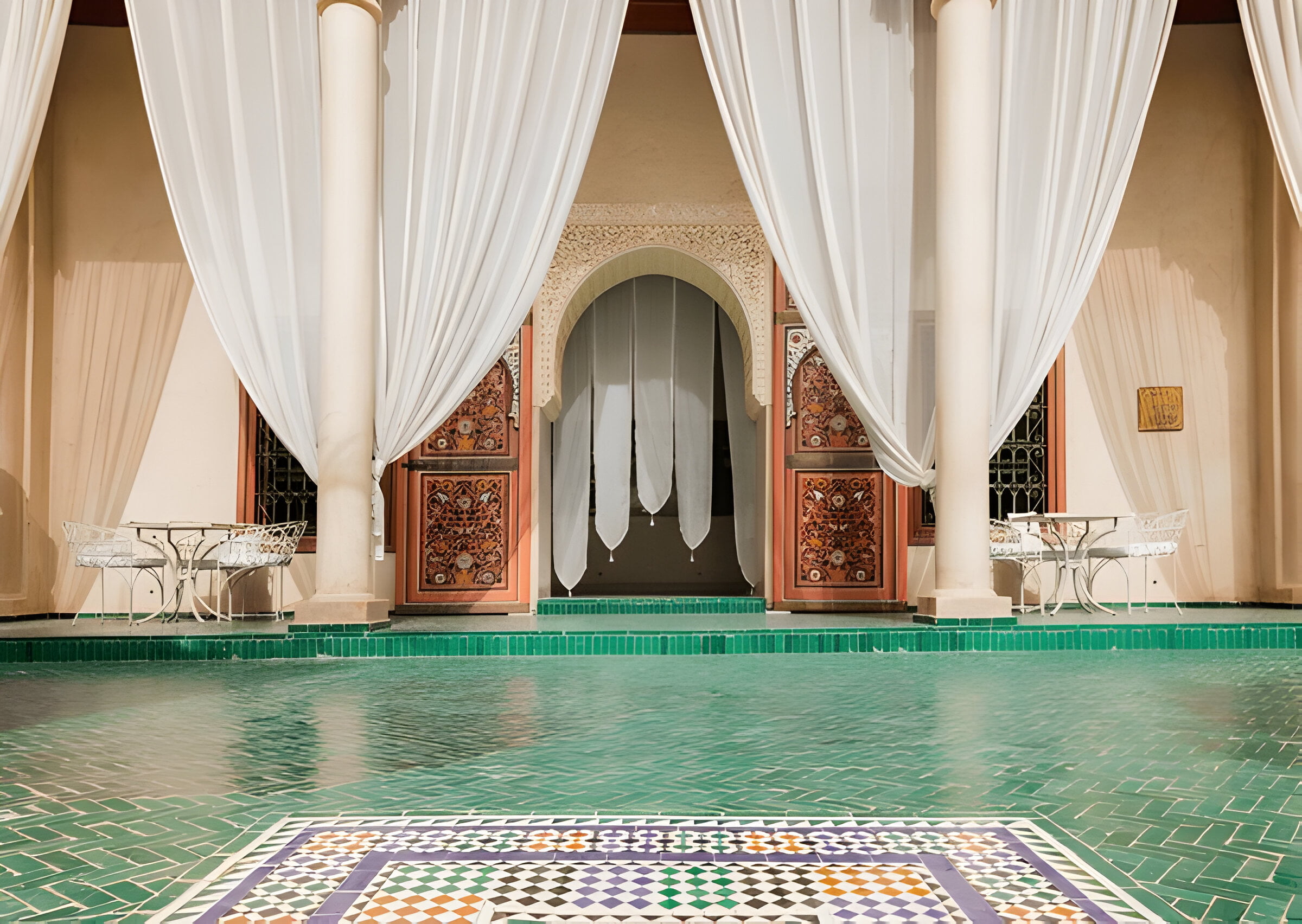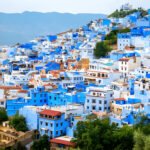Morocco is a country rich in culture, history, and tradition, offering travelers a unique opportunity to immerse themselves in an authentic cultural experience. From ancient medinas and bustling souks to traditional music and mouthwatering cuisine, Morocco has something to offer every cultural enthusiast. Planning an authentic Moroccan cultural tour requires thoughtful consideration of where to go, what to see, and how to engage with local traditions. Here’s a comprehensive guide to help you plan a cultural tour that will leave you with lasting memories of Morocco’s vibrant heritage.
1. Choose the Right Destinations
Morocco is a diverse country with distinct regions, each offering unique cultural experiences. To fully appreciate the richness of Moroccan culture, plan to visit a mix of cities, towns, and rural areas. Here are some must-visit destinations:
- Marrakech: Known as the “Red City,” Marrakech is a cultural hub where traditional and modern Morocco meet. Explore the historic Medina, visit the iconic Koutoubia Mosque, and experience the lively atmosphere of Jemaa el-Fnaa square.
- Fes: Fes is home to one of the oldest universities in the world and boasts a well-preserved medieval Medina. The city is a treasure trove of Islamic architecture, including the Al Quaraouiyine Mosque and the Bou Inania Madrasa.
- Chefchaouen: This picturesque town in the Rif Mountains is famous for its blue-washed buildings and
relaxed vibe. It’s an ideal destination for exploring
Moroccan Andalusian culture.
- Rabat: The capital city, Rabat, offers a blend of historical sites and modern attractions. Visit the Royal Palace, the Hassan Tower, and the Kasbah of the Udayas for a glimpse into Morocco’s royal heritage.
- Essaouira: This coastal town is known for its artistic community, fortified medina, and vibrant music scene. It’s a great place to experience Morocco’s diverse cultural influences, including its Portuguese and Berber heritage. 2. Engage with Local Traditions and Customs To experience Moroccan culture authentically, take the time to engage with local customs and traditions. Here are some ways to do so:
- Participate in a Cooking Class: Moroccan cuisine is a vital part of the country’s cultural identity. Join a cooking class to learn how to prepare traditional dishes like tagine, couscous, and pastilla. This hands-on experience will give you insight into Moroccan hospitality and the importance of food in social gatherings.
- Stay in a Riad: For an authentic Moroccan accommodation experience, stay in a riad—a traditional Moroccan house with an interior garden or courtyard. Riads are typically located in the heart of the medina, allowing you to immerse yourself in the local atmosphere.
- Attend a Traditional Music Performance: Morocco’s music scene is diverse, with genres ranging from Andalusian to Gnawa and Berber music. Attend a live
performance or festival to experience the rhythms and
melodies that are integral to Moroccan culture.
• Visit a Hammam: A hammam, or traditional Moroccan
bathhouse, is a cultural experience not to be missed. Visiting a hammam offers insight into Moroccan relaxation rituals and social customs.
3. Explore Morocco’s Historic Sites
Morocco’s history is reflected in its stunning architecture, ancient ruins, and UNESCO World Heritage sites. Make sure to include these historic sites in your cultural tour:
- Volubilis: Explore the ancient Roman ruins of Volubilis, a UNESCO World Heritage site near Meknes. The site features well-preserved mosaics, temples, and public buildings, providing a glimpse into Morocco’s Roman past.
- Ait Benhaddou: This fortified village, or ksar, is a UNESCO World Heritage site and one of Morocco’s most iconic landmarks. Located along the former caravan route between the Sahara and Marrakech, Ait Benhaddou is a stunning example of traditional earthen architecture.
- Medinas of Fes and Marrakech: Wander through the labyrinthine streets of the medinas in Fes and Marrakech, both of which are UNESCO World Heritage sites. These ancient cities are filled with souks, mosques, madrasas, and palaces, offering a deep dive into Morocco’s Islamic heritage. 4. Experience Moroccan Festivals and Events Morocco is home to a vibrant calendar of festivals and events that celebrate the country’s cultural diversity. Consider
planning your trip around one of these events to experience Moroccan culture at its most lively:
- Moussem of Tan-Tan: This annual festival in the Sahara desert celebrates the culture of the nomadic tribes of Morocco. The event includes traditional music, camel races, and displays of horsemanship.
- Fes Festival of World Sacred Music: Held in the historic city of Fes, this festival brings together musicians from around the world to perform sacred music from various religious traditions. The festival is a celebration of spiritual harmony and cultural exchange.
- Gnaoua World Music Festival: This festival takes place in Essaouira and is dedicated to the music and culture of the Gnaoua people, who are descendants of West African slaves. The festival features performances by Gnaoua musicians, as well as artists from other genres and traditions. 5. Respect Local Etiquette and Cultural Norms As you explore Morocco’s rich cultural landscape, it’s essential to respect local customs and etiquette. Here are a few tips to keep in mind:
- Dress Modestly: Morocco is a conservative country, so it’s important to dress modestly, especially when visiting religious sites or rural areas. Women should cover their shoulders and knees, and men should avoid wearing shorts in public.
- Learn Basic Arabic or French Phrases: While many Moroccans speak English, especially in tourist areas, learning a few basic phrases in Arabic or French can go a long way in showing respect and building rapport with locals.
• Ask Permission Before Taking Photos: In some areas, especially rural villages, people may be uncomfortable with having their photo taken. Always ask for permission before taking pictures of locals or their property.
6. Support Local Artisans and Businesses
One of the best ways to experience Moroccan culture is by supporting local artisans and businesses. Visit traditional markets, or souks, to shop for handmade crafts, textiles, and ceramics. Purchasing directly from artisans helps support the local economy and ensures that traditional crafts are preserved for future generations.
7. Consider a Guided Cultural Tour
If you’re looking for a deeper cultural experience, consider joining a guided cultural tour led by a knowledgeable local guide. A guided tour can provide valuable insights into Morocco’s history, traditions, and customs, helping you gain a more comprehensive understanding of the country’s culture.
Conclusion
Planning an authentic Moroccan cultural tour is an enriching experience that allows you to connect with the country’s vibrant heritage. By choosing the right destinations, engaging with local traditions, exploring historic sites, and respecting cultural norms, you’ll create lasting memories and gain a deeper appreciation for Morocco’s diverse culture. Whether you’re wandering through the ancient medinas, attending a traditional music festival, or savoring a home-cooked meal, your Moroccan cultural tour will be a journey of discovery and connection.








anavar vs hgh
References:
how much hgh to take for bodybuilding [https://hedgedoc.eclair.ec-lyon.fr]
how many hgh injections should i take
References:
hgh before and after pic; https://gaiaathome.eu/,
hgh cycle before and after
References:
Hgh Wirkungseintritt (Googlino.Com)
how many iu of hgh per day
References:
hgh hormone bodybuilding (oakmontforum.com)
how to cycle hgh
References:
how much iu of hgh should i take a day – brewer-gordon.thoughtlanes.net –
how much is a cycle of hgh
References:
glk-egoza.ru
hvad er hgh
References:
http://www.giveawayoftheday.com
how much hgh should i take a day
References:
scientific-programs.science
Your point of view caught my eye and was very interesting. Thanks. I have a question for you. https://accounts.binance.com/ph/register?ref=IU36GZC4